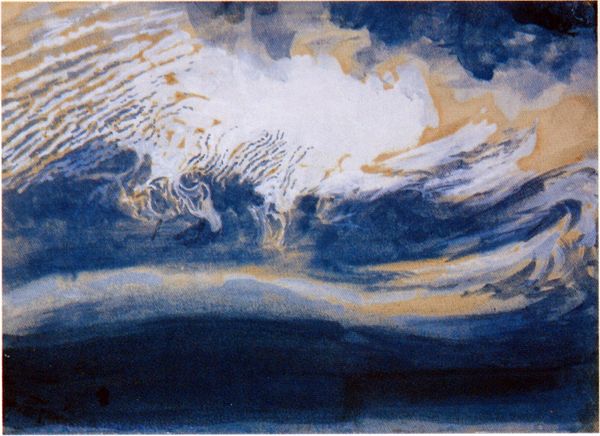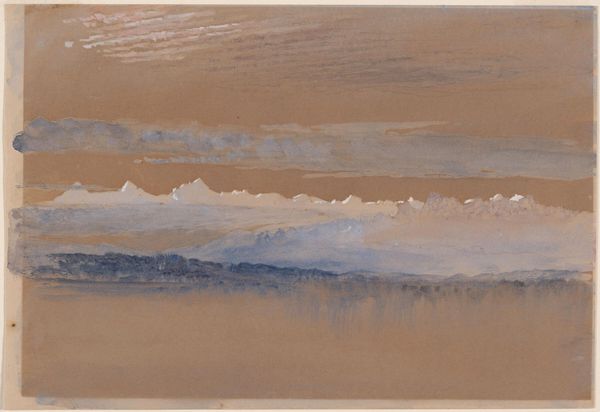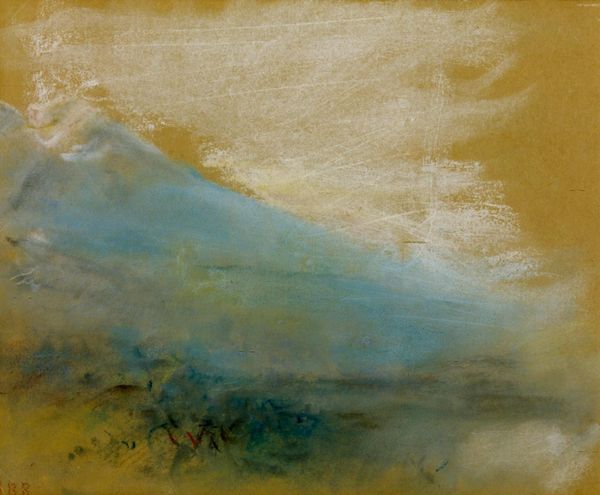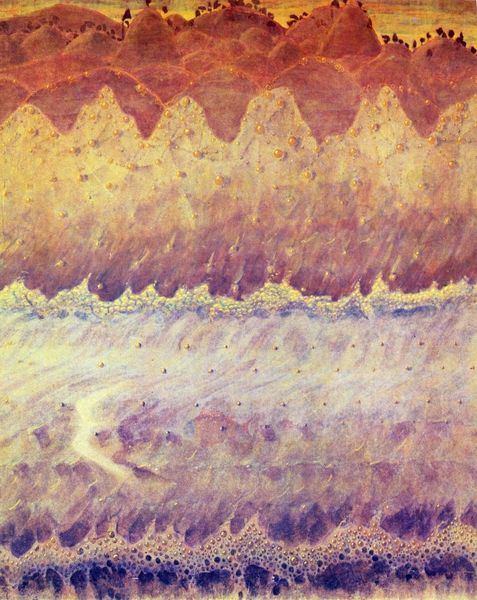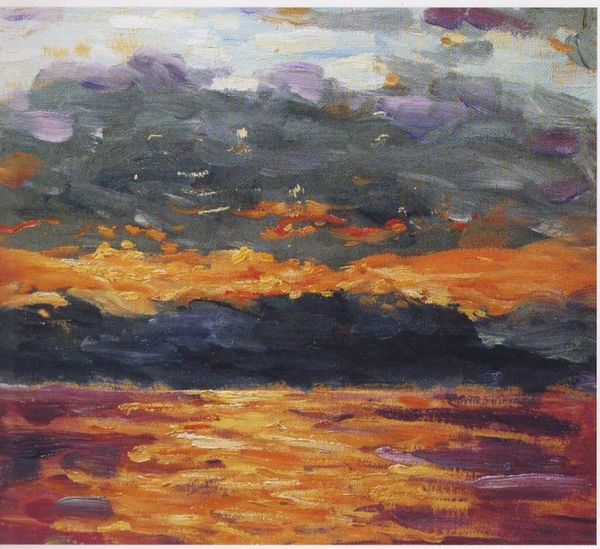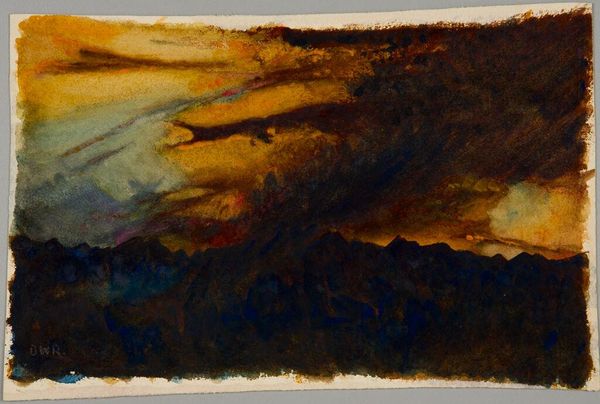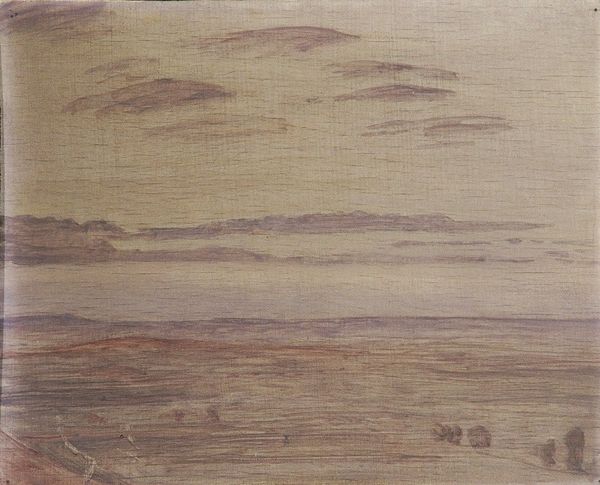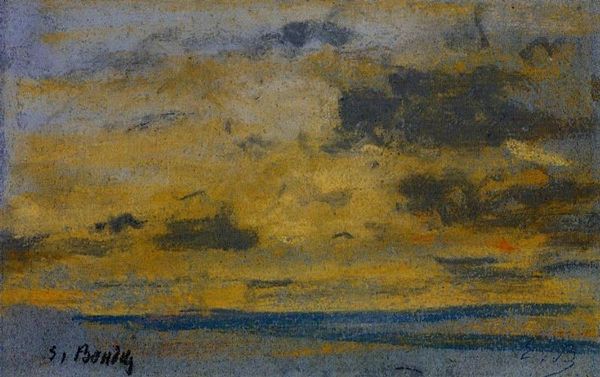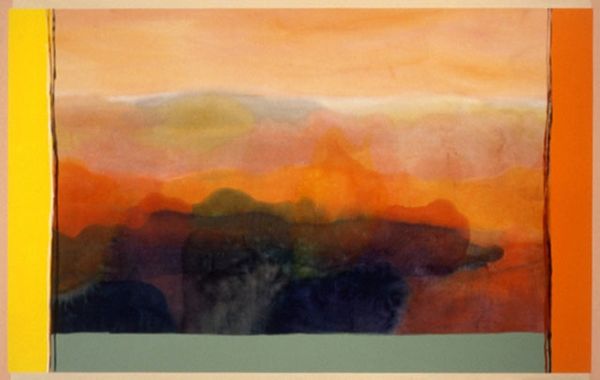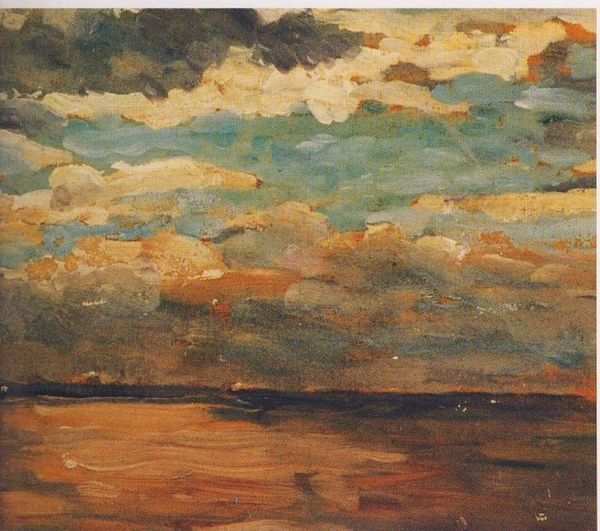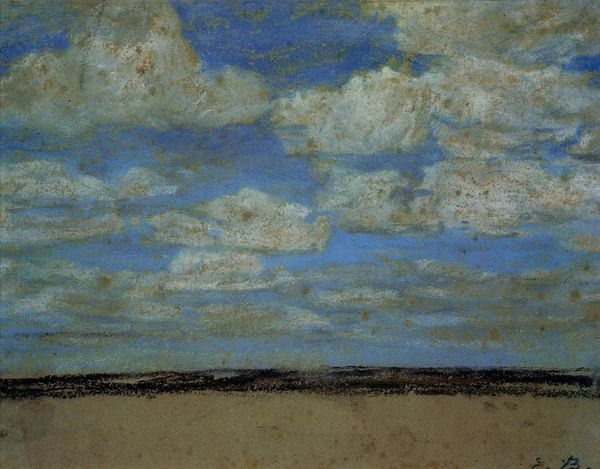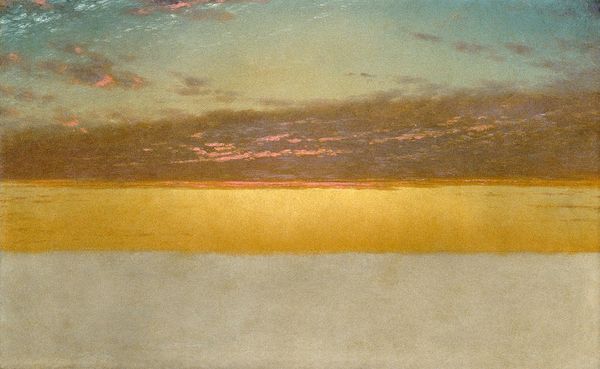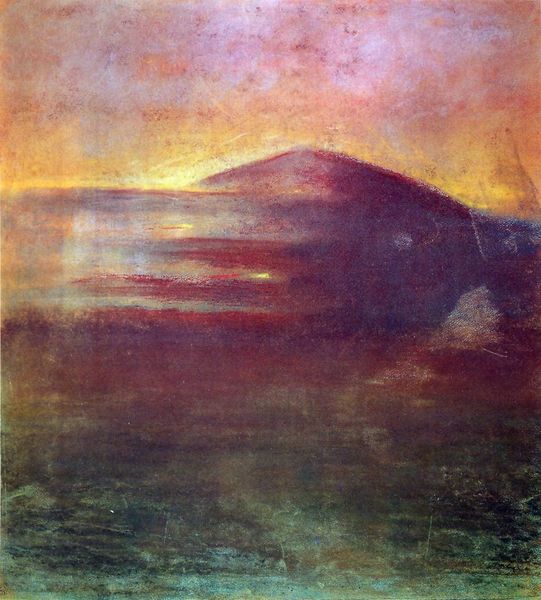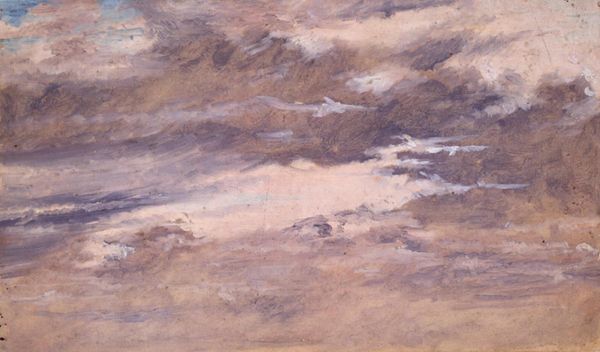
Copyright: Public domain
Curator: Let's turn our attention now to John Ruskin's "Dawn at Neuchatel," completed in 1866. Ruskin, of course, was hugely influential as a critic, social thinker, and artist, and this watercolor exemplifies his dedication to observing nature directly. Editor: It's funny, I see this and I immediately feel like I'm squinting, like waking up and the sun is just… there. It's not the kind of crisp landscape you'd expect, is it? More of a fleeting feeling. Curator: Exactly. Ruskin advocated for truthful depiction, a break from idealized landscapes. He was deeply influenced by the Pre-Raphaelites and their emphasis on detailed observation. But note here his almost impressionistic touch; those wispy strokes seem less about exactitude and more about capturing a fleeting moment. Editor: I'd call it an emotional truth. It’s so… light-filled but almost unsettling. The colors are beautiful but muted. It's a "sunrise" that feels like the world's waking up with a bit of a headache. I’m not getting idyllic, I’m getting real. Curator: Interesting. Ruskin believed art should have a moral purpose, reflecting both beauty and truth, but I understand why the subdued palette may evoke more complex emotions for a contemporary audience. He often connected the political and environmental contexts of the artwork. Editor: But that almost adds to it, right? The "truthful depiction" is now layered. We have Ruskin the observer, and Ruskin the Victorian man seeing, reacting, to an industrializing world and changing environment. Curator: Absolutely. Ruskin used his art and writings as a tool to express his concerns about industrialization, pollution, and its effects on the landscape, which he saw as reflecting humanity’s moral state. The very act of painting "en plein air," as it's labeled, became a political act—a stand against artifice. Editor: So, it’s a dawn, but maybe not of a particularly bright new day then, huh? Perhaps he was saying something by what he didn’t show. Curator: Perhaps. Seeing Ruskin in dialogue with our own concerns highlights the ongoing power of landscape art. Editor: Dawn… or a warning glow. Food for thought.
Comments
No comments
Be the first to comment and join the conversation on the ultimate creative platform.
